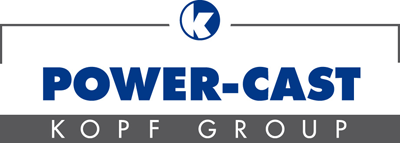Efficient spray for optimal separation
Latest technologies, the demand for ever faster development times and more cost-effective delivery chains, highest quality standards, timeliness or sustainability of environmental concepts: The increasing pressure in the automotive field is also felt at POWER-CAST Zitzmann. In order to ensure competitiveness for the long term, all production processes are continuously reviewed and optimised, and investments are geared to the relevant requirements.
POWER-CAST Zitzmann has put into operation a new, fully-automated casting cell machine (1,650 t closing force) including punch press, furnace, extraction robot and other peripheral devices. Within the framework of a holistic process definition the die spray system has also been analysed for the parameters of handling, dosing, cycle time and life cycle assessment.
The conversion to minimum quantity spraying optimises the die cast process
In conventional spraying technology, the casting mould is exposed to high thermal alternating stresses, which leads to tension cracks, which in turn, impact on the dimensional tolerance or surface quality of the component. In addition, a lot of separation agent is lost due to the inaccurate spraying processes, suction and cleaning is laborious and associated with high disposal costs.
By contrast, in minimum quantity spraying, a very low amount of fine nebulised separation agent (with the aid of a mask spray tool) is applied via 60 dosage nozzles evenly, targeted and safely on to the mould surface.
The plant manager names the low thermal exchange stress and thus lower wear on the cast moulds as the main advantages. With the optimised application, the mould service life at POWER-CAST Zitzmann will extend by a third and the component quality will be stabilised.
In direct comparison to conventional spraying, the cycle times could be shortened by five seconds (corresponds to approx. 10%) and the required quantity of liquid in the separation agent could be lowered from approx. five to under 0.5 litres per shot (corresponds to approx. 90%). "First and foremost, however, every litre of saved separation agent and non-used waste water is a valuable contribution by our company to a sustainable and respectful treating of the environment," Jens Söldner said in closing.
POWER-CAST Zitzmann: Specialised in magnesium die casting using cold-chamber die casting
Since 1992, mainly automotive parts with an individual weight of up to 5,000 g are being cast by POWER-CAST Zitzmann GmbH & Co. KG in Stockheim, Upper Franconia. The company, listed as an A Supplier with its largest customers is the competence centre for magnesium die casting made through cold-chamber processing. Plant Manager Jens Söldner: "Magnesium's density is about 1/3 lower than that of aluminium, it is perfect for pouring and can be fully recycled. As a construction material, magnesium alloys are particularly suited for high-quality components with maximum requirements with regard to strength and rigidity compared to weight. Thanks to our experience, performance and innovation we are also well prepared for future tasks in the automotive industry, such as e-mobility, light-weight construction or complexity and size of components."
Titelfoto: © altanaka

